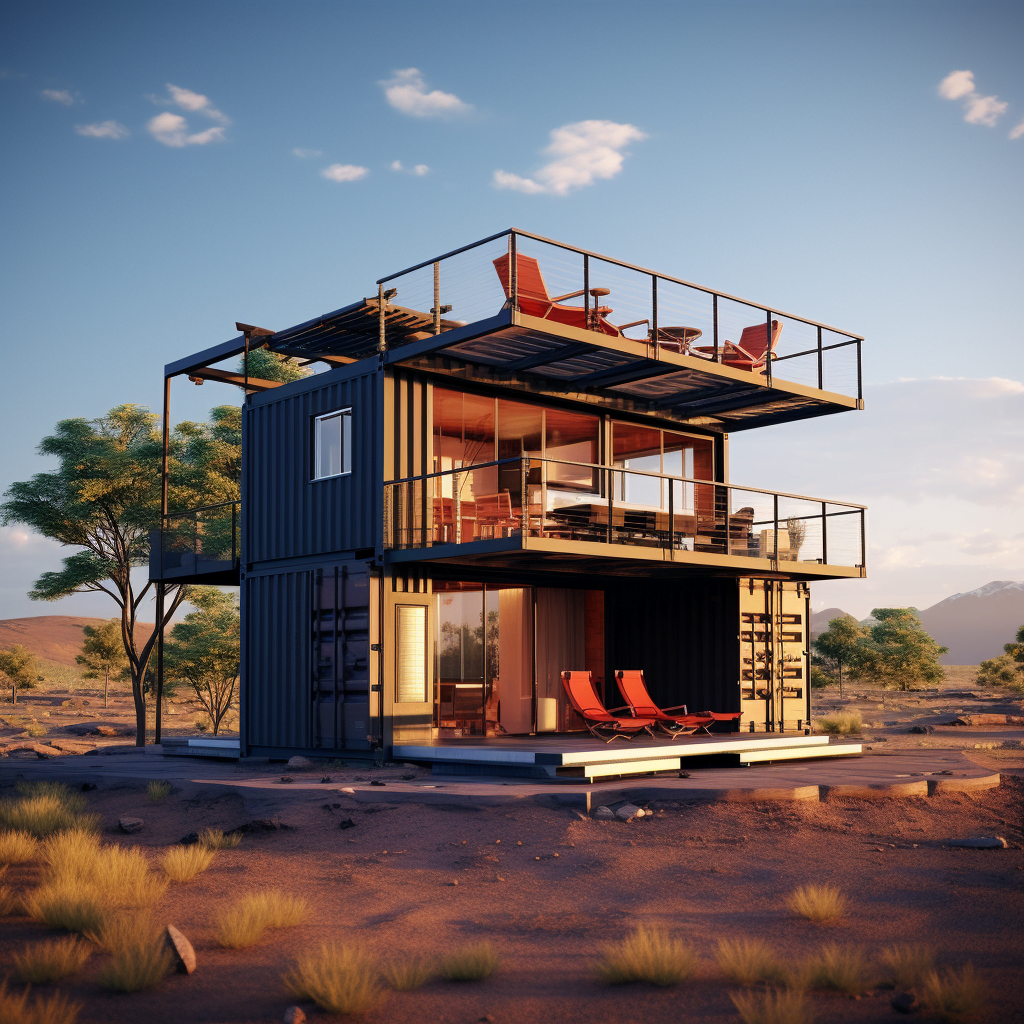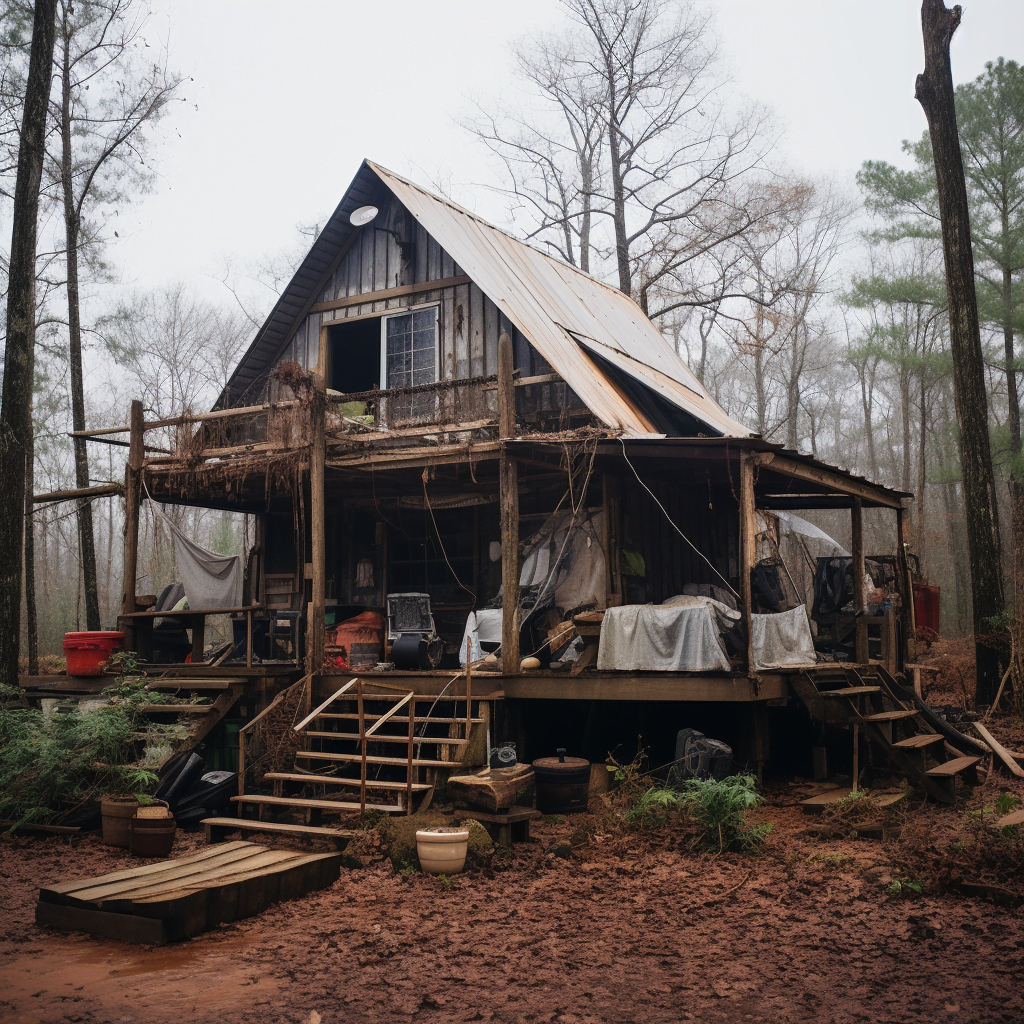The charm of off-grid living – breaking the chains of utility dependency, reducing environmental footprint, and embracing a self-sufficient lifestyle. Sounds appealing, right? But as any modern-day Thoreau would tell you, it’s important to balance the allure of living off the land with the practicality of state regulations and taxes. If you’re considering going off-grid in the ‘Constitution State’, you’re likely asking, “Is it legal to be off the grid in Connecticut?
In essence, the answer is yes, off-grid living in Connecticut is legal. However, a spectrum of factors sway the state’s suitability for this lifestyle, ranging from local zoning laws to potential restrictions on certain sustainable practices.
Connecticut – A Legal but Tricky Terrain
Connecticut isn’t typically the first name that pops up in off-grid living discussions, and for good reason. High property taxes, rigid regulations, and self-sustaining battery restrictions can make it a challenging place for those seeking an off-grid lifestyle.
“Living off the grid in Connecticut is legal, but it is not considered a good state for off-grid living due to high property taxes, unfavorable regulations, and restrictions on self-sustaining batteries.
Despite the hurdles, Connecticut does offer some perks to off-grid dwellers. It allows an unprecedented level of independence from utility companies, providing a sense of liberation, and control over one’s life. Furthermore, Connecticut’s commitment to alternative energy can help residents enjoy environmental benefits and reduced electricity bills.
Zoning Laws – A Web of Regulations
The path to living off-grid in Connecticut isn’t just about escaping the grid – it’s a journey through a labyrinth of regulations. The zoning laws concerning off-grid living and farming aren’t explicitly stated, but typically, it’s legal as long as the residence connects to an alternative energy system.
“Zoning laws for off-grid living and farming in Connecticut are not explicitly stated, but it is generally legal as long as the home is connected to an alternative energy system.”
Remember, however, zoning laws can differ by town or city. What’s permissible in Hartford might not fly in New Haven. Hence, it’s crucial to check with local authorities for specific regulations.
As for off-grid farming, this is where the waters get a bit murkier. Municipal zoning restrictions could limit off-grid living, and specific farming activities might necessitate permits or licenses.
Navigating these regulations can seem daunting, but fear not – you’re not alone. Several resources can guide you through the regulatory maze, including expert guides, government websites, and insightful articles.
Embracing the Off-grid Challenges
Living off-grid isn’t just about navigating through legal statutes. It’s an adventure that requires mental and emotional fortitude, a spirit for self-sustenance, and a readiness to partake in the Earth’s bounty without depleting it.
“Disadvantages include high property taxes, unfavorable regulations, lack of access to municipal resources, and the need for emotional and physical readiness.”
The high property taxes in Connecticut might pose financial challenges to an off-grid lifestyle, and the absence of immediate access to municipal resources could test your survival skills. Moreover, the state’s climate can be demanding, necessitating an efficient off-grid system and a comprehensive plan to deal with potential power shortages during the chilly winters.
Harvesting Rainwater in Connecticut – A Green Signal
While certain elements of off-grid living can seem restrictive in Connecticut, the state gives a green light to one vital sustainable practice – rainwater harvesting.
“Rainwater harvesting is legal in Connecticut without specific regulations, but it’s recommended to check with local authorities for any local restrictions or guidelines.”
Capturing, storing, and using rainwater can be a rewarding way to manage water resources in an off-grid setting, and Connecticut doesn’t impose specific regulations on this practice. That being said, local restrictions or guidelines may exist, so it’s always a prudent step to check with local authorities before setting up a rainwater harvesting system.
Despite Connecticut’s seeming bureaucratic complexity for off-grid living, the state provides fertile ground for fostering a sustainable lifestyle. The barriers are real but surmountable, the regulations are complex but navigable. And for those who dare to tread off the beaten path, a life of self-reliance and profound connection with nature awaits.
Connecticut’s regulations may seem labyrinthine, but with the right resources, you can find your way to an off-grid life. Government websites, zoning law guides, and local community forums can be invaluable aids in deciphering Connecticut’s legal jargon and understanding the local off-grid scenario.
Additionally, networking with fellow off-gridders can provide practical tips and insights. After all, the off-grid community is more than just a collection of individuals; it’s a vibrant network of people sharing ideas, challenges, and success stories, each carving their own niche in the wilderness of self-sufficiency.
The Road Ahead: Overcoming Challenges and Embracing Independence
As with any pioneering venture, living off the grid in Connecticut brings its own unique challenges. It isn’t a path for everyone, but for those who choose this road, the rewards are substantial. The sense of independence, the connection with nature, the financial savings, and the satisfaction of living a sustainable life can be deeply fulfilling.
“Advantages include independence from the utility company, environmental benefits, reduced electric bills, flexibility in location, and greater control over one’s life.”
However, it’s essential to keep in mind that this lifestyle is not without its trials. Preparing yourself emotionally and physically is as crucial as understanding the legalities involved.

Conclusion: A Frontier of Freedom and Responsibility
Connecticut’s laws may not make it the easiest state for off-grid living, but with the right preparation and resources, it’s not an impossible dream. Living off the grid is about more than just escaping from urban chaos; it’s about embracing a new way of life, nurturing a more profound connection with the environment, and reveling in the spirit of self-reliance.
In this era of mounting environmental concerns and escalating energy costs, the off-grid lifestyle offers a viable alternative that balances the scales of freedom and responsibility. For the bold, the curious, and the eco-conscious, it could be the next frontier.
Remember, while the journey might be fraught with hurdles, the horizon is limitless for those willing to explore. Off-grid living in Connecticut may be a road less traveled, but as the poet Robert Frost mused, taking the road less traveled can make all the difference.
As you contemplate this exciting lifestyle, remember to tap into the available resources, consult with local authorities, and network with fellow off-gridders. It’s a journey worth embarking upon, an adventure of discovery, independence, and living in harmony with nature.
In the end, off-grid living isn’t just about where you are—it’s about who you become along the way.
Frequently Asked Questions
1. Is living off the grid legal in Connecticut?
Yes, it is legal to live off the grid in Connecticut. However, it is important to ensure that your home is connected to an alternative energy system and to comply with any local zoning laws or restrictions.
2. Why is Connecticut not considered a good state for off-grid living?
While it’s certainly possible to live off the grid in Connecticut, high property taxes, certain regulations, and restrictions on self-sustaining practices can pose challenges. However, each individual’s experience can vary, and some people successfully live off the grid in the state.
3. Do I need any permits or licenses for off-grid farming in Connecticut?
While Connecticut does not have explicit regulations on off-grid farming, there may be permits or licenses required for certain farming activities. It’s recommended to check with local authorities to ensure compliance.
4. Can I harvest rainwater for my off-grid home in Connecticut?
Yes, rainwater harvesting is legal in Connecticut, and there are no specific state-wide regulations against it. However, local guidelines or restrictions might exist, so it’s always best to check with local authorities.
Guides, government websites, and articles can help you understand the regulations for off-grid living. Local community forums and networks of people living off the grid can also provide valuable insights and advice.




